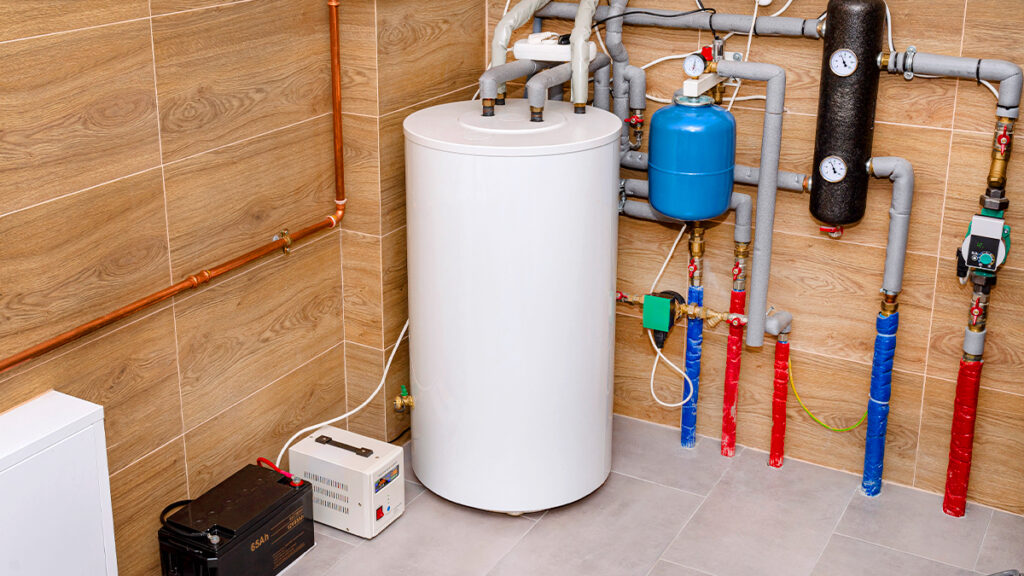A water heater is one of the most important appliances in your home. However, like most household appliances, water heaters have a limited lifespan that over time, can start to show signs of wear and tear. While it may be tempting to wait until a major issue arises, recognizing the early signs that your water heater needs replacement can prevent unexpected disruptions, like waking up to a cold shower, or worse, dealing with water damage from a leaking tank. Replacing an aging or malfunctioning water heater not only helps provide a steady supply of hot water but it can also save you money by reducing energy bills and avoiding costly emergency repairs.
In this blog, we’ll walk you through some of the most common signs that your water heater may be on its last legs. By staying informed and taking proactive steps, you can avoid the hassle and expense of a sudden breakdown and enjoy peace of mind knowing your home’s hot water needs are well taken care of.
Water Heater Age
One of the clearest indicators that it’s time to replace your water heater is its age. Traditional water heaters typically last between 8 and 12 years. Over time, wear and tear affect the system’s efficiency, even with regular maintenance. An aging water heater will not only struggle to perform but also risk more frequent breakdowns and costly repairs. If your unit is approaching or exceeding this age range, it’s wise to start exploring replacement options to avoid a sudden failure.
The older your water heater gets, the less energy-efficient it becomes. This means it has to work harder to heat water, which can result in higher energy bills. Additionally, older units are more susceptible to leaks and other issues that can lead to water damage in your home. Checking the serial number on your water heater can tell you when it was manufactured, but if you’re unsure or need help determining its age, a plumbing professional can assess its condition and recommend the best course of action.
Inconsistent Water Temperature
Inconsistent water temperature is another red flag. If your water temperature fluctuates from scalding hot to lukewarm, it’s a sign that something is wrong with your water heater. This problem could stem from worn-out heating elements or a buildup of sediment inside the tank, which prevents the system from heating water efficiently. While a quick fix may address the issue temporarily, consistent temperature problems often point to a more serious underlying issue that requires attention.
Over time, sediment accumulates at the bottom of your water heater’s tank. This sediment layer can act as an insulating barrier between the water and the heat source, making it harder for the unit to maintain consistent water temperature. The more sediment buildup, the more your system struggles to keep up with your household’s demand for hot water. If you’re frequently adjusting the temperature or running out of hot water too quickly, it may be more cost-effective in the long run to invest in a new, more efficient unit.
Rusty or Cloudy Water
If you notice rusty or cloudy water coming from your hot water tap, your water heater may be corroding from the inside. Corrosion inside the tank can cause rust to enter your water supply, which not only affects water quality but also signals that your water heater is on borrowed time. Once rust begins to eat away at the interior of your water heater, leaks and cracks are likely to follow.
Similarly, if your water looks cloudy or has a metallic taste, mineral and sediment buildup inside the tank could be to blame. Sediment can cause your water heater to work harder, which may lead to higher energy bills and less reliable hot water. While flushing the tank can sometimes clear out the sediment, persistent problems with water quality are a strong indicator that your water heater may need to be replaced sooner rather than later.
Leaks Around the Water Heater
A water heater leak is never a good sign. Even small puddles or moisture around the base of the unit should not be ignored. Leaks typically indicate a serious internal problem, such as corrosion or a crack in the tank. While minor leaks may be repairable, significant leaks often signal that the water heater is on its way out.
Ignoring leaks can lead to major water damage in your home, which can be expensive and time-consuming to repair. Additionally, as leaks worsen, they can cause your water heater to lose pressure, reducing its ability to deliver hot water when you need it. If you notice any signs of leaking around your water heater, it’s best to call a professional plumber to assess the damage and recommend a replacement if necessary.
What’s Next for Your Water Heater?
Being aware of the signs that your water heater may need replacement can help you avoid inconvenient situations and ensure your home stays comfortable. Issues like fluctuating water temperatures, rusty water, strange noises, and leaks should never be ignored, as they often point to a failing system. Replacing an older or malfunctioning unit can improve your home’s efficiency and prevent further problems down the line.
If any of these signs sound familiar, it might be time to consider upgrading to a newer, more energy-efficient water heater. Lex’s Plumbing is here to assist you in evaluating your current system and recommending the best solution for your household’s needs.

